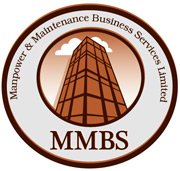- I.W.E.D Institute
-
-

Institute for Workforce Education & Development
Providing Quality Training and Development Programmes... possessing the will to overcome limitations
Learn More Apply- Manpower & Maintenance Business Services LTD
-
-

Manpower & Maintenance Business Services
Our Mission
To provide high quality outsourced services and solutions that drive efficiency and productivity for our business partners.
LEARN MORE- MMS GROUP
- MMS Foundation
-
-

Manpower and Maintenance Services Foundation (MMSF)
Our Inspiration
Improving Lives Through Education. The power of education to positively transform life paths and lay the foundation for personal and national success is widely known. The foundation provides support to children and youth to access and fully maximize educational opportunities through grants, scholarships and internships. The Foundation also aids the transition process into the world of work through its mentorship programme. Here MMS employees volunteer as mentors to encourage and provide guidance to those who need it.
Learn More1(876) 920-4721-5

-
- MMS GROUP
-
- Manpower & Maintenance Business Services LTD
-
-
Get in touch
1(876) 920-4721-5
Fax: +1 876 926.6143
1 Eureka Road,
Kingston 5
Jamaica W.I.